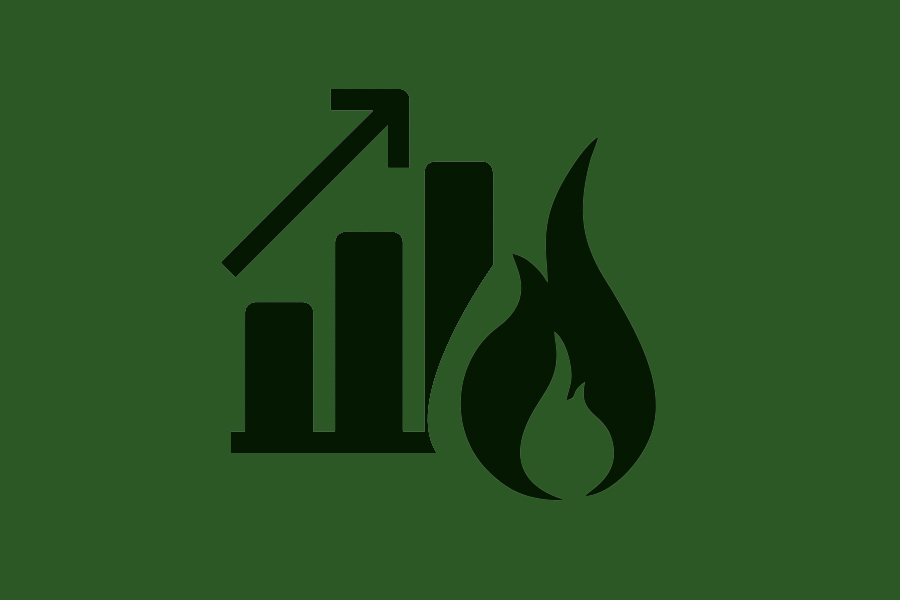
Published :
Updated :

The Foreign Investors’ Chamber of Commerce and Industry (FICCI) and the European Union Chamber of Commerce in Bangladesh (EuroCham) expressed their grave concern over the recent gas price hike.
The Bangladesh Energy Regulatory Commission (BERC) introduced a revised gas tariff structure on Sunday that differentiates between new, committed, and existing customers within the same industrial category.
“While FICCI fully supports the government’s objective of ensuring a sustainable and reliable energy supply, the newly announced tariff mechanism risks creating unintended barriers for new and expanding industries,” said the chamber in a statement on Tuesday.
FICCI cautioned that the new differentiated tariff structure — which imposes higher rates on industries with new Gas Sales Agreements (GSAs), increased demand, or recent connections — could deter both foreign and domestic investment, disrupt industrial competitiveness, and hinder the country's broader economic goals.
Under the newly proposed structure, businesses within the same industrial category would face varying gas tariffs based on when or how their supply agreements were signed.
This differentiated pricing model presents several challenges. It introduces inequity in energy costs across similar operations, undermines the principle of a level playing field, and could adversely affect Bangladesh’s industrial competitiveness at a time when investment momentum is building, said the statement.
Importantly, it may disincentivise new foreign and domestic investments at a critical juncture, just as the government is proactively engaging the global investor community through initiatives such as the recent Investment Summit, which drew participation from nearly 50 countries, said the chamber.
Zaved Akhtar, president of FICCI, emphasised that predictability and fairness in utility pricing are essential for sustained investor confidence.
“A transparent and equitable energy pricing framework is fundamental to sustaining investor confidence and industrial growth,” he said.
“While we understand the evolving demands of energy management, we urge BERC to revisit this approach and ensure policy changes align with national economic development and FDI attraction goals,” he added.
FICCI further notes that the provision to treat any new Gas Sales Agreement as a new connection — even for long-standing industrial users — introduces ambiguity and could lead to arbitrary reclassification.
This could inadvertently disrupt existing business continuity and create administrative and operational uncertainty. New Gas Sales Agreement with existing customers should not be falling under the tariff for new connections.
During the public hearing held on February 26, 2025, industry stakeholders collectively expressed strong reservations about the proposed tariff structure.
FICCI emphasises the importance of continuing dialogue with all relevant stakeholders, including foreign and domestic investors, to ensure that energy reforms support inclusive and sustainable industrial growth.
“We encourage BERC and the Ministry of Power, Energy and Mineral Resources to engage in further consultation and collaboration to ensure energy pricing remains competitive, predictable, and conducive to long-term investment,” reads the statement.
EuroCham
In a separate statement, the European Union Chamber of Commerce in Bangladesh (EuroCham) also raised concern, saying it could create an uneven playing field, penalise new and growing businesses.
EuroCham acknowledges the government’s efforts toward a sustainable energy future and appreciates the progress made in energy sector reforms.
However, the Chamber is concerned about the recently announced gas tariff structure by the Bangladesh Energy Regulatory Commission (BERC), which introduces differential pricing based on industrial consumers’ contractual timelines and gas connections.
While recognising the complexity of energy policy, EuroCham believes that the current model—placing higher tariffs on new and expanding industries—may unintentionally undermine Bangladesh’s competitiveness and investment appeal.
Fragmented energy costs within the same sector risk discouraging both foreign and domestic investment at a time when Bangladesh is actively positioning itself as an attractive global business destination, it said.
Nuria Lopez, Chairperson of EuroCham Bangladesh, noted that “Maintaining a predictable and balanced energy tariff regime is essential for ensuring investor confidence and supporting industrial expansion. We believe a collaborative approach to policy design can help avoid business disruptions and send a positive signal to potential investors.”
EuroCham also pointed to the ambiguity surrounding the reclassification of long-standing industrial users under new Gas Sales Agreements and encouraged BERC to approach such transitions with clarity and fairness to avoid unnecessary administrative and financial burdens.
Echoing sentiments shared during the recent public hearing, EuroCham supports calls for a more inclusive and transparent reform process.
The Chamber encourages BERC to engage more deeply with industry stakeholders in designing an energy pricing framework that aligns with the nation’s goals of industrial resilience, energy security, and sustainable economic development.
EuroCham remained fully committed to partnering with the government to shape policies that promote inclusive growth and a competitive business environment for all.


 For all latest news, follow The Financial Express Google News channel.
For all latest news, follow The Financial Express Google News channel.